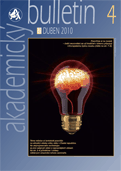The results of the research by scientists from The CAS published in the prestigious journal Nature Communications
What causes disruptions of chromosome division in mammalian eggs?
The team of Dr. Michal Kubelka, Dr. Andrej Šušor and Dr. Martin Anger from the Institute of Animal Physiology and Genetics of The CAS and their foreign colleagues have made a fundamental discovery of the cause of aneuploidy in eggs that affects as many as 35 % of women over age 35. The missing or additional chromosomes in the egg can inter alia lead to the emergence of Down’s syndrome. The scientific team discovered that the suppression of the function of the molecular pathway mTOR, which is responsible for the synthesis of specific proteins in the right place at the right time, or its disruption leads to genomic instability, even though the egg is capable of being fertilized by sperm.
The study by Czech scientists and their colleagues from the University of California in San
Francisco and Sungkyunkwan University in South Korea also describes that the synthesis of proteins
in the egg does not take in place in all parts of the cell in the same way as it could be expected,
but it takes place in a so-called gradient, which is necessary for the development of the egg.
These results are significant not only for understanding the primary steps in the regulation of the
events in this cell in the model organism of mice, but also for human medicine, because the results
so far, acquired in collaboration with the clinic of the Centre for Assisted Reproduction of the
1st Medical Faculty of Charles University and the General University Hospital in Prague, show that
the human egg functions similarly to the mouse egg.
You can find the article
here.
9 Mar 2015






